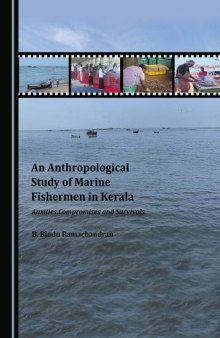 جزییات کتاب
جزییات کتاب
Anthropological studies of marine fishermen have explored immense diversity among fishing societies, and the management strategies of marine resources in the context of globalization and changing technologies deserve the utmost attention from researchers in an uncertain economy. In India, fishing communities belong to various different castes and religions. This book presents an anthropological study of Hindu marine fishermen in two neighboring fishing villages situated in the same coastal belt, but administered by two different state governments (Kerala and Pondicherry). It explores the ways in which state interventions influence the development paradigm of a marginalized society like marine fishermen, and discusses the distribution pattern of production systems and its significance at the household level. The book also considers the gendered forms of economic transformation in fishing due to declining marine resources, and technological and climate change. It also focuses on the role of women fish vendors in market spaces as instituted by their distribution and credit connections and the unique experiences of the development process through anxieties, compromises and survival in an uncertain economy. The book will be of interest to researchers, administrators and NGOs working for the inclusive development of marginalized communities sharing common property resources.



 دانلود کتاب
دانلود کتاب

 جزییات کتاب
جزییات کتاب





 این کتاب رو مطالعه کردید؟ نظر شما چیست؟
این کتاب رو مطالعه کردید؟ نظر شما چیست؟
